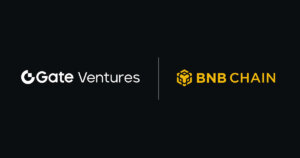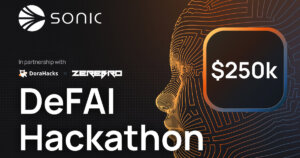 Understanding the CRO tokens and the difference between crypto.org and CRONOS Liam 'Akiba' Wright · 2 years ago
Understanding the CRO tokens and the difference between crypto.org and CRONOS Liam 'Akiba' Wright · 2 years ago Understanding the CRO tokens and the difference between crypto.org and CRONOS
Ken Timsit, the Managing Director of CRONOS, the blockchain behind the CRO token, explains the difference between the two chains and the need for both.
Ken Timsit, the Managing Director of CRONOS, the blockchain behind the CRO token, explains the difference between the two chains and the need for both.
Crypto.org is a chain dedicated to fast payment settlements, whereas CRONOS is a fully EVM and IBC compatible blockchain for developers to build and create dApps.
Learn more from Ken in the interview, his views on the bear market, and what is to come for CRONOS.
Latest Episodes
From failure to fortune: Jonathan Bouzanquet on blockchain and gaming
2 weeks ago 40 min episodeSwaroop Hegde discusses Powerloom’s mission to reshape data integrity in blockchain
3 weeks ago 37 min episodeExploring DeFi on Telegram: Alexander Sudeykin on EVAA Protocol and the TON ecosystem
4 weeks ago 32 min episodeOn-chain AI and the future of privacy: Jesse Glass talks identity, AGI, and Decide AI’s 2025 roadmap
1 month ago 40 min episodeFeatured channel
Since 2017, CryptoSlate has strived to be an objective authority for the fast-moving and nascent digital assets space
Follow @cryptoslateIn this episode
Ken Timsit is the Head / Managing Director of Cronos chain (Cronos.org) and its Cronos Labs ecosystem accelerator.

Crypto.com
Exchange Company in AsiaCrypto.com was founded in 2016 on a simple belief: it’s a basic human right for everyone to control their money, data and identity.





 Elon Musk
Elon Musk 

































































 CRO
CRO
